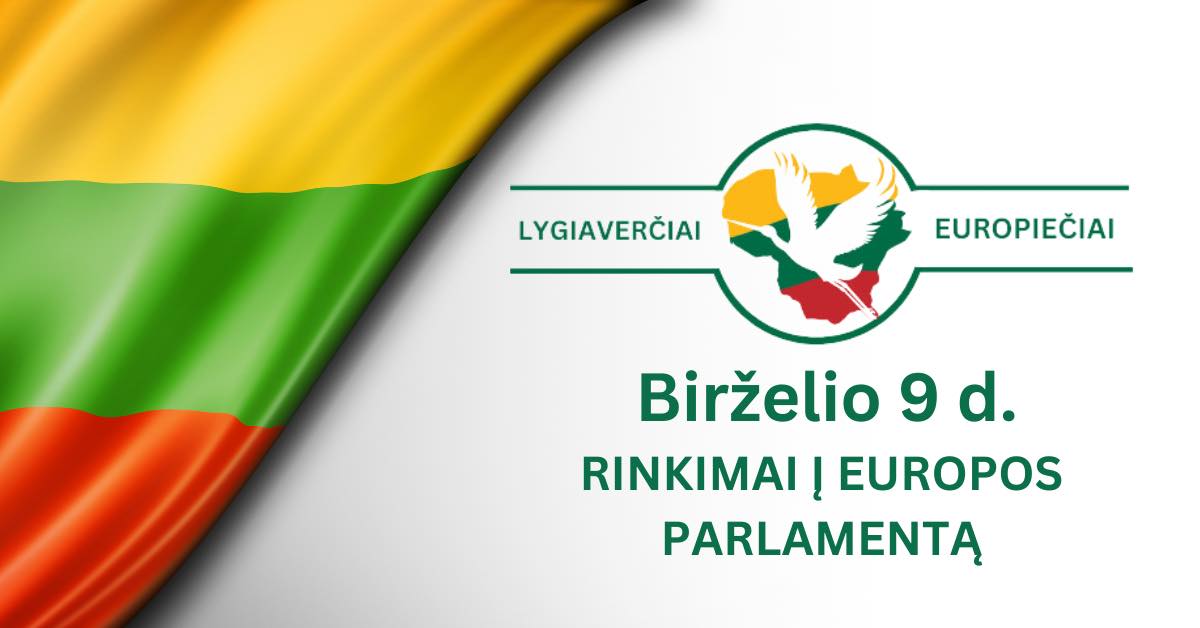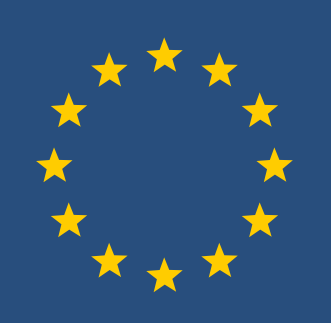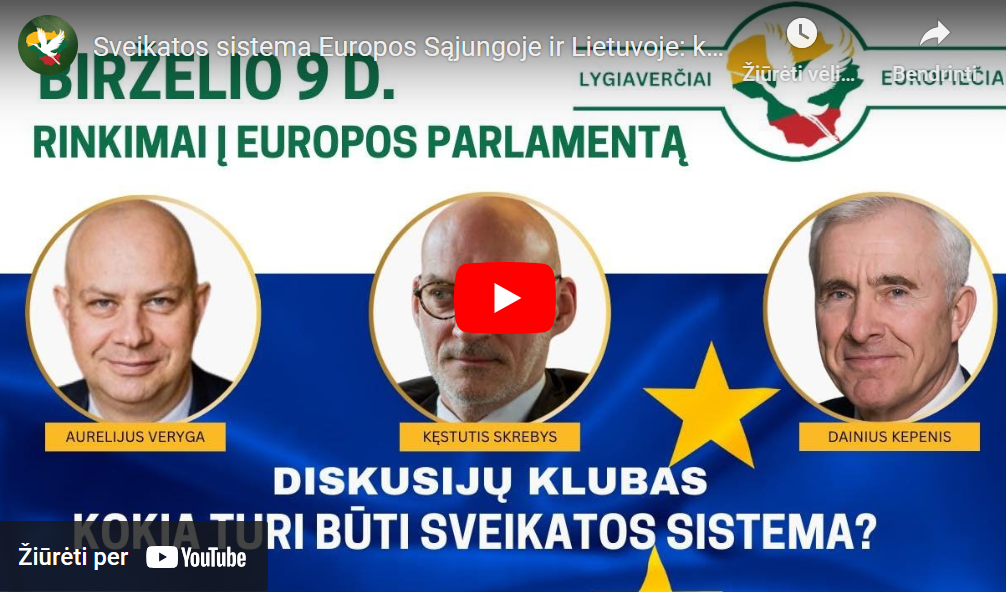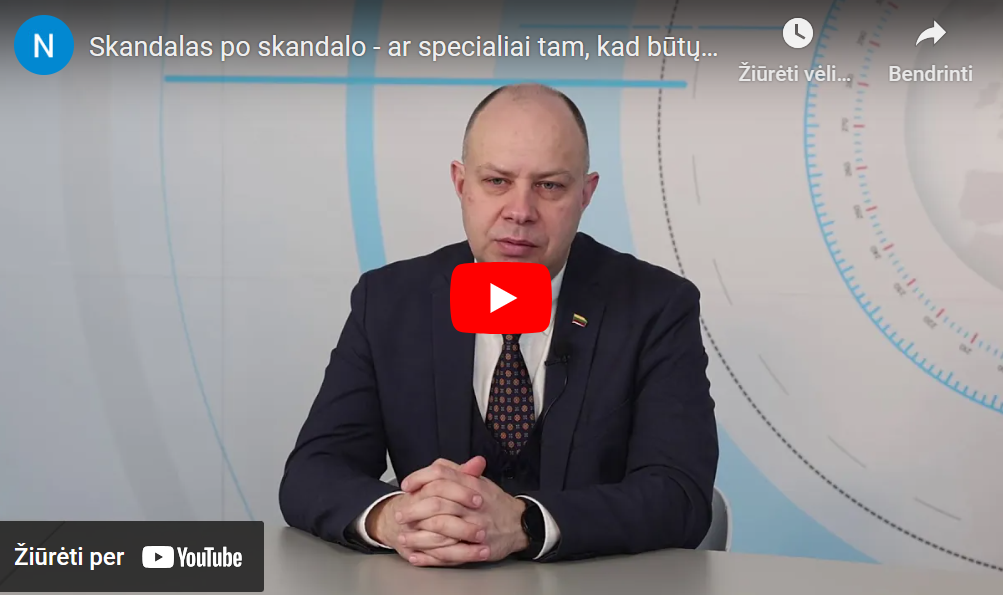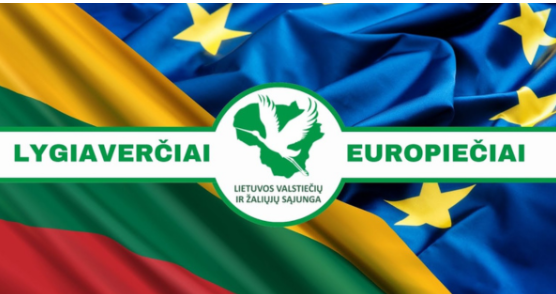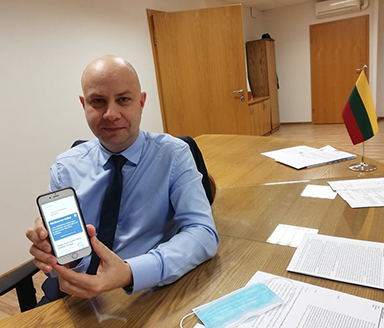Tarptautiniai dokumentai
Jungtinių Tautų darnaus vystymosi tikslai
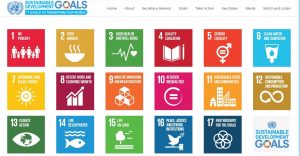 On September 25th 2015, countries adopted a set of goals to end poverty, protect the planet, and ensure prosperity for all as part of a new sustainable development agenda. Each goal has specific targets to be achieved over the next 15 years.
On September 25th 2015, countries adopted a set of goals to end poverty, protect the planet, and ensure prosperity for all as part of a new sustainable development agenda. Each goal has specific targets to be achieved over the next 15 years.
For the goals to be reached, everyone needs to do their part: governments, the private sector, civil society and people like you.
Pasaulio sveikatos organizacijos programa „Sveikata 2020: Tekstas anglų kalba
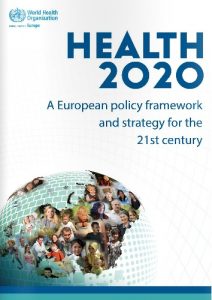 Health 2020 is the new European health policy framework. It aims to support action across government and society to: “significantly improve the health and well-being of populations, reduce health inequalities, strengthen public health and ensure people-centred health systems that are universal, equitable, sustainable and of high quality”.
Health 2020 is the new European health policy framework. It aims to support action across government and society to: “significantly improve the health and well-being of populations, reduce health inequalities, strengthen public health and ensure people-centred health systems that are universal, equitable, sustainable and of high quality”.
The policy framework is evidence-based and peer-reviewed. It makes the case for investment in health and creating societies where health is valued. It details the ways that good health benefits all in society. Good health is vital for economic and social development and supports economic recovery.
It gives policy-makers a vision, a strategic path, a set of priorities and a range of suggestions about what works to improve health, address health inequalities, and ensure the health of future generations. It identifies strategies for action that are adaptable to the many contextual realities of the WHO European Region.
Health 2020 is the product of an extensive two-year consultation process across the Region and beyond, and was adopted by the 53 Member States of the Region during the sixty-second session of the WHO Regional Committee for Europe in September 2012.
Pasaulio sveikatos organizacijos Tabako kontrolės pagrindų konvencija:
Tekstas anglų kalba
Tekstas lietuvių kalba
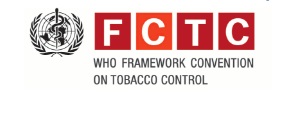 he WHO Framework Convention on Tobacco Control (WHO FCTC) is the first international treaty negotiated under the auspices of WHO. It was adopted by the World Health Assembly on 21 May 2003 and entered into force on 27 February 2005. It has since become one of the most rapidly and widely embraced treaties in United Nations history.
he WHO Framework Convention on Tobacco Control (WHO FCTC) is the first international treaty negotiated under the auspices of WHO. It was adopted by the World Health Assembly on 21 May 2003 and entered into force on 27 February 2005. It has since become one of the most rapidly and widely embraced treaties in United Nations history.
The WHO FCTC was developed in response to the globalization of the tobacco epidemic and is an evidence-based treaty that reaffirms the right of all people to the highest standard of health. The Convention represents a milestone for the promotion of public health and provides new legal dimensions for international health cooperation.
Pasaulio sveikatos organizacijos Alkoholio vartojimo mažinimo strategija:
Tekstas anglų kalba
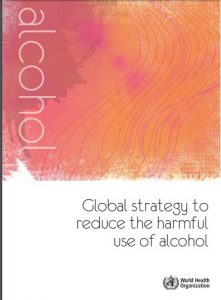 For the first time, delegations from all 193 Member States of World Health Organization (WHO) reached consensus at the World Health Assembly on a global strategy to confront the harmful use of alcohol. Since 2008, WHO has been in the process of drafting a global strategy to reduce the harmful use of alcohol. On Friday 21 May 2010 the Sixty-third session of the World Health Assembly adopted by consensus resolution WHA63.13, which endorses the global strategy.
For the first time, delegations from all 193 Member States of World Health Organization (WHO) reached consensus at the World Health Assembly on a global strategy to confront the harmful use of alcohol. Since 2008, WHO has been in the process of drafting a global strategy to reduce the harmful use of alcohol. On Friday 21 May 2010 the Sixty-third session of the World Health Assembly adopted by consensus resolution WHA63.13, which endorses the global strategy.
The harmful use of alcohol is a serious health burden, and it affects virtually all individuals on an international scale. Health problems from dangerous alcohol use arise in the form of acute and chronic conditions, and adverse social consequences are common when they are associated with alcohol consumption. Every year, the harmful use of alcohol kills 2.5 million people, including 320 000 young people between 15 and 29 years of age. It is the third leading risk factor for poor health globally, and harmful use of alcohol was responsible for almost 4% of all deaths in the world, according to the estimates for 2004.
The global strategy focuses on ten key areas of policy options and interventions at the national level and four priority areas for global action.
The ten areas for national action are:
- leadership, awareness and commitment;
- health services’ response;
- community action;
- drink-driving policies and countermeasures;
- availability of alcohol;
- marketing of alcoholic beverages;
- pricing policies;
- reducing the negative consequences of drinking and alcohol intoxication;
- reducing the public health impact of illicit alcohol and informally produced alcohol;
- monitoring and surveillance.
The four priority areas for global action are:
- public health advocacy and partnership;
- technical support and capacity building;
- production and dissemination of knowledge;
- resource mobilization.
The implementation of the global strategy will require active collaboration with Member States, with appropriate engagement of international development partners, civil society, the private sector, as well as public health and research institutions. WHO an its Memer States are dedicated to work togehter to address the key areas of policy options and interventions, to interact with relevant stakeholder and to ensure that the strategy is implemented both nationally and globally. The progress of the strategy will be assessed at the Sixty-sixth World Health Assembly in 2013.
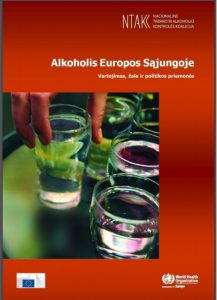 2008 m. Europos Komisija (EK) ir PSO Europos regioninis biuras pradėjo projektą, kuriuo siekiama sukurti Europos alkoholio ir sveikatos informacinę sistemą, pakeisiančią ankstesniąją, sukurtą 2002 m. Ši veikla vyko glaudžiai bendradarbiaujant su PSO Psichikos sveikatos ir priklausomybių skyriumi, PSO būstinėje Ženevoje integruojant duomenis į Globalią informacinę sistemą, skirtą alkoholiui ir sveikatai. Šio darbo rezultatas – Europos ataskaita apie alkoholį ir sveikatą 2010 m., grindžiama 2009 m. PSO Europos regione surinkta informacija. Pagal 2011 m. duomenis atnaujinti ataskaitoje„Alkoholis Europos Sąjungoje“ pateikti svarbiausi alkoholio vartojimo, jo pasekmių sveikatai rodikliai ir informacija apie tai, kas daroma Europos Sąjungoje (ES) mažinant alkoholio sąlygotą žalą.
2008 m. Europos Komisija (EK) ir PSO Europos regioninis biuras pradėjo projektą, kuriuo siekiama sukurti Europos alkoholio ir sveikatos informacinę sistemą, pakeisiančią ankstesniąją, sukurtą 2002 m. Ši veikla vyko glaudžiai bendradarbiaujant su PSO Psichikos sveikatos ir priklausomybių skyriumi, PSO būstinėje Ženevoje integruojant duomenis į Globalią informacinę sistemą, skirtą alkoholiui ir sveikatai. Šio darbo rezultatas – Europos ataskaita apie alkoholį ir sveikatą 2010 m., grindžiama 2009 m. PSO Europos regione surinkta informacija. Pagal 2011 m. duomenis atnaujinti ataskaitoje„Alkoholis Europos Sąjungoje“ pateikti svarbiausi alkoholio vartojimo, jo pasekmių sveikatai rodikliai ir informacija apie tai, kas daroma Europos Sąjungoje (ES) mažinant alkoholio sąlygotą žalą.
Pasaulio sveikatos organizacijos fizinio aktyvumo strategija
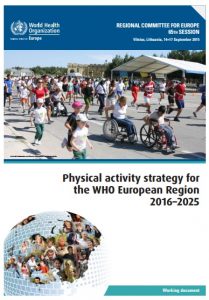 This physical activity strategy was prepared in the light of the existing voluntary global targets set out in the WHO Global action plan for the prevention and control of noncommunicable diseases 2013–2020, endorsed by the Sixty-sixth World Health Assembly in May 2013. The strategy focuses on physical activity as a leading factor in health and well-being in the European Region, with particular attention to the burden of noncommunicable diseases associated with insufficient activity levels and sedentary behaviour. It aims to cover all forms of physical activity throughout the life-course.
This physical activity strategy was prepared in the light of the existing voluntary global targets set out in the WHO Global action plan for the prevention and control of noncommunicable diseases 2013–2020, endorsed by the Sixty-sixth World Health Assembly in May 2013. The strategy focuses on physical activity as a leading factor in health and well-being in the European Region, with particular attention to the burden of noncommunicable diseases associated with insufficient activity levels and sedentary behaviour. It aims to cover all forms of physical activity throughout the life-course.

